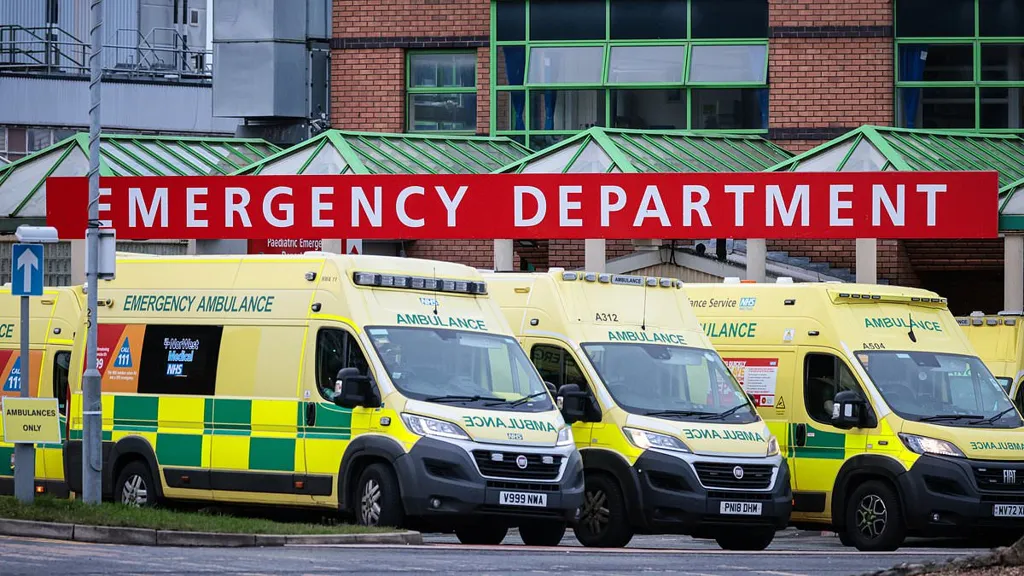Ambulances spent time totalling around 15 years waiting for patients to be accepted into hospital in the first two weeks of winter -- up from 10.5 years last year.
So-called 'handover delays' are counted after fifteen minutes have passed before patients are accepted into hospital.
The number of delays lasting at least one hour has also risen drastically in the figures for England. In the 2023/24 winter, it was 16,423.
This winter it is already 29,477, a rise of 79 per cent. It means handover delays of an hour or longer now account for 16 per cent of all handovers, up from 9 per cent last winter.
The mean average time for handover delay has also jumped up significantly from 32 minutes to 44 minutes over the past two weeks, a rise of 37 per cent.
In total, there have been 130,990 hours worth of handover delays in the past two weeks, the equivalent of 15 years.
This is up from 91,645 hours in the 2023/24 winter, a spike of 43 per cent.
Liberal Democrat MP Helen Morgan said: 'This winter promises to be one of the most challenging on record'
NHS England has said that handover delays are a risk to patients and said that they also compromise care in the community as they prevent ambulances from leaving the hospital.
The Liberal Democrats, who analysed official statistics, are calling for the government to make sure this is the last winter crisis patients and the health service face.
The party is calling for a £1.5billion ring-fenced fund to 'winterproof' the NHS -to build resilience in hospital wards, A&E departments, ambulance services and patient discharging.
Health and Social Care spokesperson, Helen Morgan MP said: 'This winter promises to be one of the most challenging on record.'
NHS England has said that handover delays are a risk to patients and said that they also compromise care in the community.
The number of delays lasting at least one hour has also risen drastically in the figures for England. In the 2023/24 winter, it was 16,423.
'We are not even into the depths of winter yet but we are already seeing worrying trends that this year could be even worse than last, and we all know how tough that was.
'We cannot allow this situation to spiral. Failure to get ahead of this crisis could lead to hospitals being overwhelmed and patients suffering the consequences.
'The government must come forward with a plan to put in place measures to address this alarming situation.
'They also need to set out plans to winterproof the NHS so this is the last winter crisis the health service and patients ever face.'
NHS England contacted for comment.
